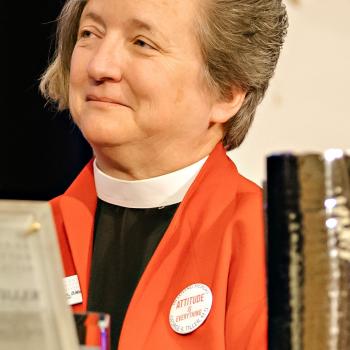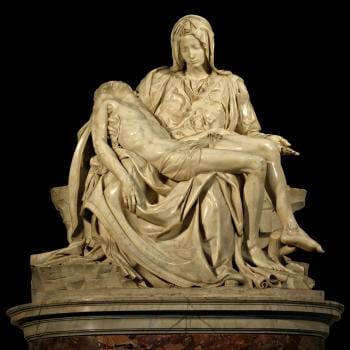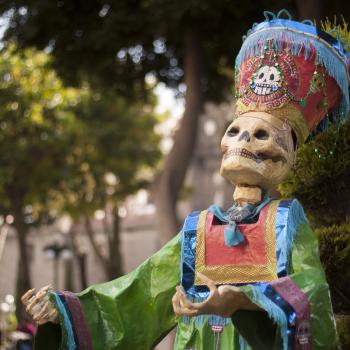Anglicanism is tearing itself apart at the moment over two big issues: women’s ordination and homosexuality. Some of the Anglican groups continue to hold out against women’s ordination to the priesthood. The latest Anglican splinter group: ACNA (Anglican Church of North America) allows its members to ordain women priests, but will not have women bishops. They hold out against homosexuality.
The issues of homosexuality and women’s ordination, however, are secondary to the real issue of authority, and the question of authority has two aspects: mode of argument and the source of authority in the church.
When we consider modes of argument, the progressives have really been caught up in the subjective modes of argument of our time. Their arguments are sentimental, utilitarian and political. The sentimental argument for women’s ordination, for example, is “Sally is such a nice person, it would be so hurtful to deny her ordination.” The utilitarian is, “Sally is such a good pastor and counselor and preacher. She would do such a good job!” The political is, “This is a question of equal rights.” The arguments from Scripture and tradition and all the other disciplines essentially attempt to support these three basic modes of argument.
It doesn’t take a German theologian to figure out that these three modes of argument can also be used to support homosexual marriage, homosexual ordination and most anything you want to support. So the sentimental, “Steve and Bob are such sweet guys. Why should they not be allowed to marry?” The utilitarian, “This is a practical move to help homosexual people with legal problems.” The political, “This is a question of equal rights. You are denying these men the right to marry which you give other people.”
What is lacking is any idea at all that there might actually be an authority that is greater than individual sentimentality, utility or political correctness. Some Christians would cry out, “But we do have such an authority! The Bible!”
The problem, of course, is that people on both sides of both of these questions use the Bible to sincerely support their view. The reason I became a Catholic in 1995 is because I sincerely confronted the Anglican Church’s decision to ordain women priests.
I was determined to be open minded and listen to both sides. It turned out that both sides had good arguments. Both sides wheeled out Biblical scholars, church historians, sociologists, psychologists, monks, nuns, theologians, bishops, etc etc. Both sides were peopled by folks who were sincere, prayerful, Bible reading, church going Christians who really, honestly did believe that they were being led by the Holy Spirit.
This made me ask the question, “Then how do we decide?” If we put it to the vote in General Synod that really doesn’t decide anything because those who lose will not accept it anyway. There must be a greater authority in the church to decide such matters, and this led me home to Rome.
If you would like to read more along these lines, check out my conversion story here on my website. The article is from my book of conversion stories called The Path to Rome.
SPECIAL OFFER: If you are a clergyman in the Anglican Communion I will send you a free copy of The Path to Rome. All you have to do is email me through my contact page on the website, and be willing to make a donation towards post and packing.











